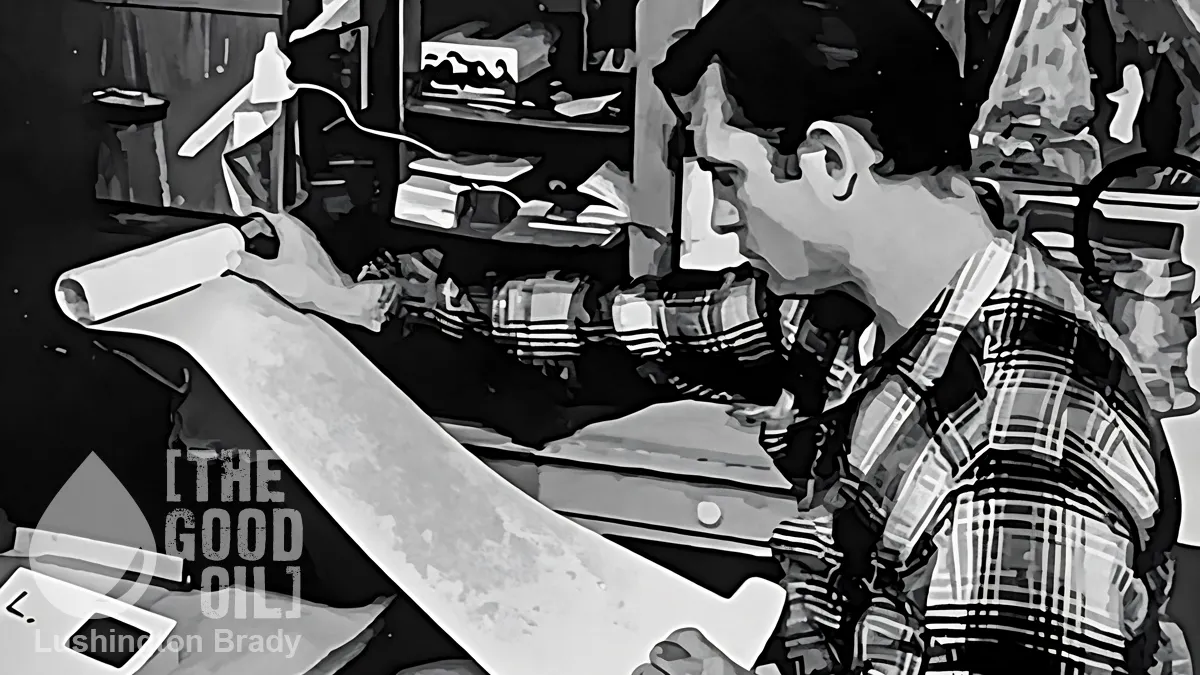Table of Contents
George Orwell wrote that language “becomes ugly and inaccurate because our thoughts are foolish, but the slovenliness of our language makes it easier for us to have foolish thoughts”. J R R Tolkien made the “Black Speech” language of Sauron ugly and brutal in order to reflect its creator’s evil nature.
Orwell was an Anglican-lite socialist, Tolkien was a Catholic conservative. Yet they shared much beyond their regard for language: an abiding love of England and a deep respect for its common people.
Progressives and conservatives, for their part, share at least one thing: a concern for “seeking the best way to provide a good life for a society and its people”.
Conservatives should at least recognise that progressives at least pay lip service to humanitarian ideals (even if they’re hopelessly, sometimes maliciously, wrong about methods). Progressives must shake off the delusion that they alone feel the humanitarian impulse.
And perhaps if both of them used the word “conservatism” properly, they might begin to see that there is indeed at least a common starting-point.
Firstly, “conservative” is not synonymous with “right-wing”.
Political conservatism needs to be distinguished from moral conservatism, with which it is often confused. Moral conservatism has tended to identify with the Right side of politics.
However, this is increasingly not the case. Many “progressive” causes célèbres are notably morally conservative: from the feminist hostility to pornography to the reactionary leftist attitudes to gender and racial relations. This why some refer to the “regressive left”, and why so many “progressives” are so congenial to morally conservative Islam.
To understand political conservatism properly, we need to understand its origins.
Political conservatism finds its origins in 18th century English statesman Edmund Burke and his changing regard for the French Revolution. Initially a supporter, Burke was horrified by the Revolution’s immediate turn to terror.
Burke’s primary charge against the French Revolution was that it sought to transform the world based on a theory. It made the utopian assumption that a society could be designed from scratch by well-meaning individuals using no more than their powers of reason, and following the high-minded principle of equality. “Rage and frenzy will pull down more in half an hour, than prudence, deliberation, and foresight can build up in an hundred years.” Also, the champions of theory were as falsely optimistic about the malleability of human nature as they were about human society. They “are so taken up with their theories about the rights of man, that they have totally forgot his nature”.
Burke’s criticism of utopian progressivism has held true ever since. The horrors of Communism and Nazism were both grounded in the same radical utopian impulse. Nazism was the racialised expression of socialism, communism its class-based expression.
The “rage and frenzy” of revolutionary progressivism made Burke conscious of the rightful regard for established institutions.
Societies and their institutions are complex, far beyond the understanding of even the most intelligent individuals. Hence the only sure way to build good institutions is over time, using the wisdom of generations. To Burke’s mind, the grave business of politics requires a mood of humility and respect: the faults of the state should be approached as “the wounds of a father, with pious awe and trembling solicitude”.
This is the heart of the conservative temperament.
Five main elements compose the conservative temperament. First, there is a liking for order and a society in which things work: where there are plentiful goods in the shops; trustworthy banks; clean streets and parks; where rubbish is collected; where there is orderly traffic; safe neighbourhoods; well-organised sporting events; and fluent public transport. Failure of the general contributors to comfortable and smoothly running everyday life irritates[…]
Second, there is love of country. An instinctive patriotism induces warm feelings towards the homeland and those with whom it is shared. As a consequence, the nation state is held to be the fundamental social entity, the locus of principal identification, belonging and attachment. Supranational organisations such as the UN and the EU are distrusted, as are quasi-legal bodies like the Australian Human Rights Commission.
Third, there is respect for the common people, for existing institutions and for the nation’s past. Burke described the state as an enduring contract or partnership “between those who are living, those who are dead, and those who are to be born”.
The towering statesman of Australian conservatism, Robert Menzies, said that “the real life of this nation is to be found…in the homes of people who are nameless and unadvertised, and who, whatever their individual religious conviction or dogma, see in their children their greatest contribution to the immortality of their race. The home is the foundation of sanity and sobriety; it is the indispensable condition of continuity; its health determines the health of society”.
Conservatives, therefore, share the very concern for the common people which progressives endlessly espouse – but so rarely practise. Conservatives revere the home and family for the same reason radical progressives are determined to dismantle both.
The fourth element in the conservative temperament is scepticism. Drawn to moderation and balance, it is instinctively wary of enthusiasm, of charisma in politics, of ideology, and of fanaticism of any colour, whether in politics or religion. There is a complementary recognition that effective politics is unglamorous. It is, in the words of German sociologist Max Weber, “a strong and slow boring of hard boards”.
Fifth, in relation to defence and international relations, the conservative inclination is to unidealistic realpolitik. The national interest should almost solely govern geopolitical policy. Long-term defence strategy requires prudence, preparation and vigilance, and assuming the worst in terms of the intentions of potentially hostile regional powers. In general, the conservative temperament prides itself on worldly realism.
The Australian
All five of those elements of the conservative temperament are at the heart of Tolkien’s most beloved fictional creations: Hobbits, and the Shire.
Hobbits, as Tolkien writes, “love peace and quiet and good tilled earth”: a society in which things work and there are plentiful goods in the shops and safe neighbourhoods. Hobbits are sceptical of modernist apparatus such as complicated machinery and take heed only for their own, small affairs. Instead, the hobbits have a deep and abiding love of their country, and an instinctive respect for institutions. Even though, by Bilbo and Frodo’s time, there has not been a king for 1,000 years, still the hobbits keep the laws, “because they were The Rules: ancient and just”.
The hobbits are Menzies’ “forgotten people”, the “small hands” who “move the wheels of the world…because they must, while the eyes of the great are elsewhere”.
It is telling, therefore, that Tolkien’s creations found their first superstardom in the revolutionary 1960s. Hippies who sneered at conservatism nonetheless revered the embodiment of conservatism: the hobbits of the Shire.

Please share this article so that others can discover The BFD









